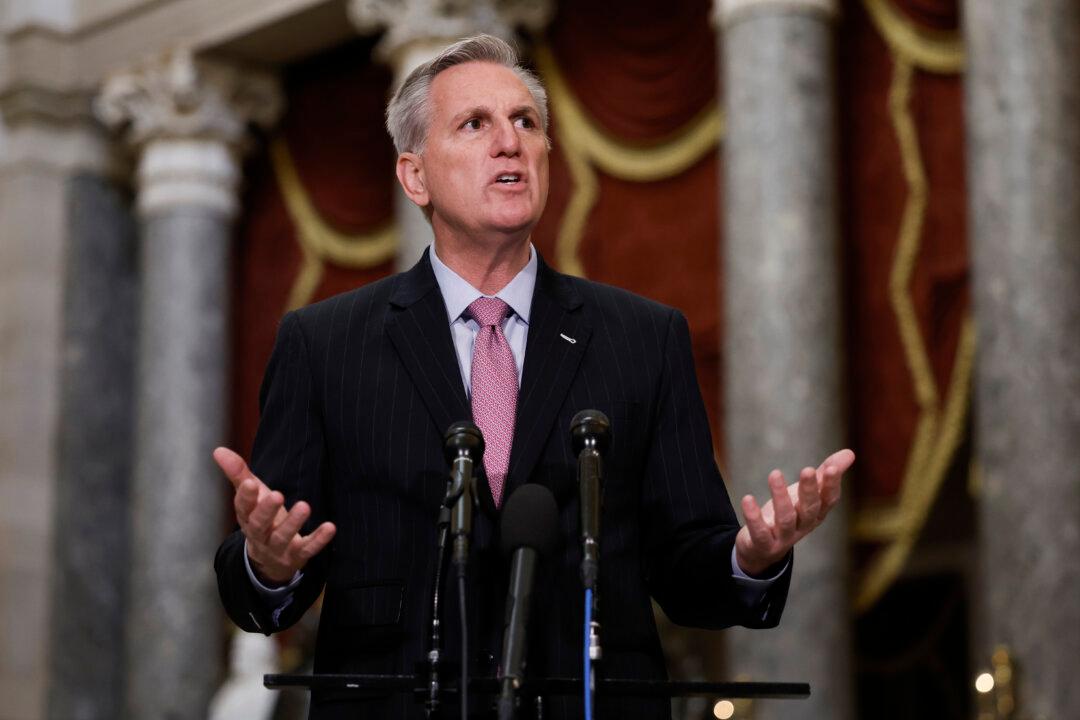Speaker of the House Kevin McCarthy (R-Calif.) rejected President Joe Biden’s demand that Congress increase the nation’s debt ceiling without attaching any conditions such as the spending cuts that virtually all congressional Republicans are demanding.
In an informal news conference with reporters just outside the Capitol, McCarthy said “we’re six months away, approximately, and what I would like to do is sit down with all the leaders, especially the President, and start having the discussion.”





